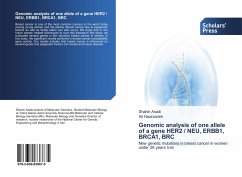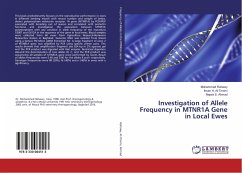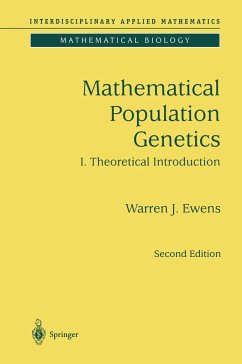
Allele-specific Oligonucleotide
Versandkostenfrei!
Versandfertig in 6-10 Tagen
23,99 €
inkl. MwSt.

PAYBACK Punkte
12 °P sammeln!
High Quality Content by WIKIPEDIA articles! An allele-specific oligonucleotide is a short piece of synthetic DNA complementary to the sequence of a variable target DNA. It acts as a probe for the presence of the target in a Southern blot assay or, more commonly, in the simpler Dot blot assay. It is a common tool used in genetic testing, forensics, and Molecular Biology research. An ASO is typically an oligonucleotide of 15u201321 nucleotide bases in length. It is designed in a way that makes it specific for only one version, or allele, of the DNA being tested. The length of the ASO, which stra...
High Quality Content by WIKIPEDIA articles! An allele-specific oligonucleotide is a short piece of synthetic DNA complementary to the sequence of a variable target DNA. It acts as a probe for the presence of the target in a Southern blot assay or, more commonly, in the simpler Dot blot assay. It is a common tool used in genetic testing, forensics, and Molecular Biology research. An ASO is typically an oligonucleotide of 15u201321 nucleotide bases in length. It is designed in a way that makes it specific for only one version, or allele, of the DNA being tested. The length of the ASO, which strand it is chosen from, and the conditions by which it is bound to the target DNA all play a role in its specificity. These probes can usually be designed to detect a difference of as little as 1 base in the target's genetic sequence, a basic ability in the assay of single-nucleotide polymorphisms, important in genotype analysis and the Human Genome Project. To be detected after it has bound to its target, the ASO must be labeled with a radioactive, enzymatic, or fluorescent tag.












